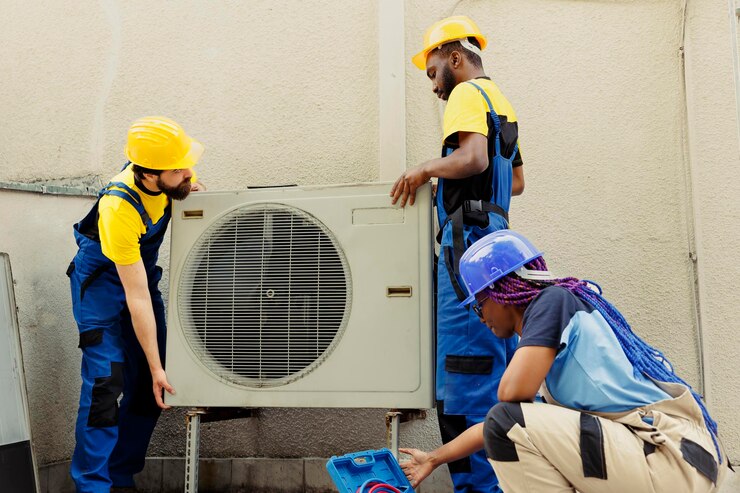Insurance can be a lifesaver for HVAC contractors. It’s like the seatbelt in your car—often overlooked until you really need it. For HVAC contractors, having the right insurance is not just about covering costs; it’s a safety net that helps protect against unforeseen incidents. Imagine working on a client’s air conditioning system, and suddenly there’s an unexpected equipment failure. Without proper coverage, you’re left shouldering repair costs, potential client dissatisfaction, and a hit to your reputation.
There are many insurance-related concerns that HVAC contractors face. These might include poorly structured policies that don’t cover specific damages or unexpected disputes with insurance providers about the terms of the coverage. Such issues can become massive headaches, leading to financial strain and operational issues. Understanding the types of protection available and recognizing where gaps may exist becomes critically important for anyone in this line of work.
Understanding HVAC Contractor Insurance
For HVAC contractors, insurance is more than a formality—it’s a shield that safeguards against the uncertainties of day-to-day work. These insurance policies typically cover a range of incidents, offering a buffer for situations like equipment breakdowns or liability claims. Without it, even a minor mishap on a job site could lead to serious financial trouble.
- General Liability Insurance: This covers bodily injuries and property damage that might occur during your work. It’s essential because it can protect you if a client decides to sue over a mishap on their property.
- Property Insurance: This takes care of your tools and equipment. If your valuable gear gets damaged or stolen, a good property insurance policy will cover repair or replacement costs.
- Workers’ Compensation Insurance: A must-have if you have employees. It helps cover medical expenses and lost wages if someone gets injured on the job.
- Commercial Auto Insurance: If you or your team drives to clients’ locations in company vehicles, this insurance covers accidents involving those vehicles.
A solid insurance plan provides peace of mind, helping HVAC contractors focus on their work without the constant worry of potential financial pitfalls. By balancing these different coverages, contractors ensure they’re well-equipped to handle any challenges that come their way.
Common Insurance Issues Faced by HVAC Contractors
Navigating the insurance landscape can be tricky for HVAC contractors. Several common issues crop up that can challenge the smooth operation of a business. A frequent problem is inadequate coverage. Some contractors might operate under the assumption that a bare-bones policy is enough, only to find out too late that it doesn’t cover all potential mishaps. For example, an HVAC contractor in Duncanville might install a new heating system, and it malfunctions. If their insurance doesn’t cover this kind of incident, they’re left to deal with costly repairs or replacements.
Another issue is the misunderstanding of policy terms. Policies can be filled with legal jargon that confuses policyholders, leading to disputes when claims are made. Contractors could find themselves at odds with insurers over what they believed was covered versus what truly is. Additionally, delays in processing claims can cause financial strain, as contractors might have to halt operations while waiting for settlements.
Steps to Take When Facing Insurance Issues
When HVAC contractors face insurance issues, acting quickly is key to minimizing damage. Here are steps contractors in Duncanville can implement:
1. Review Your Policy: Go through the details of your insurance policy. Understanding what you’re covered for can help you plan your next steps wisely.
2. Contact Your Provider: Reach out to your insurance provider immediately. Discuss the issue and explore potential solutions or clarifications they may offer.
3. Document Everything: Keep detailed records of the incident and any communications with your insurer. Documentation can be a lifesaver when resolving disputes or understanding your coverage’s scope.
4. Consult a Professional: Don’t hesitate to seek legal or professional advice. An expert can offer insights and help work through complex situations.
Preventive measures can ward off future problems, too. Regularly updating your policy, ensuring your coverage reflects your business needs, and educating yourself about policy terms are wise practices. This proactive approach can spare you from the pains of unexpected insurance challenges.
Importance of Working with Professional Insurance Providers
Working with experienced insurance providers can make a world of difference for HVAC contractors. An understanding partner isn’t just about selling a policy; it’s about offering a reliable safety net designed around the unique needs of your business. When you collaborate with seasoned professionals, you gain access to insights that can save you from common pitfalls.
A trusted provider gives you the confidence to run your business smoothly, knowing that you have the right kind of protection in place. It’s essential to look for providers with a strong track record, those who understand the intricacies of the HVAC industry and who tailor solutions to your specific situation.
Choosing the right partner involves a bit of homework. Check reviews, ask for recommendations, and have detailed discussions about how they can meet your specific needs. With the right team supporting you, you’ll find that the world of insurance becomes far less challenging.
If you’re ready to protect your HVAC business from unexpected issues and ensure smooth operations, learn more about how Fry Integra Insurance Services can help. Explore our HVAC contractor insurance in Duncanville options today and feel confident that your business is safeguarded from unforeseen incidents.


0 Comments